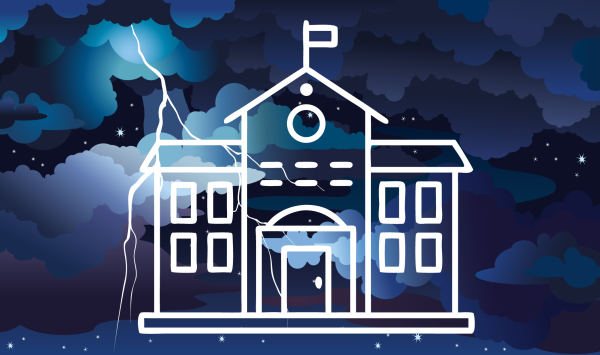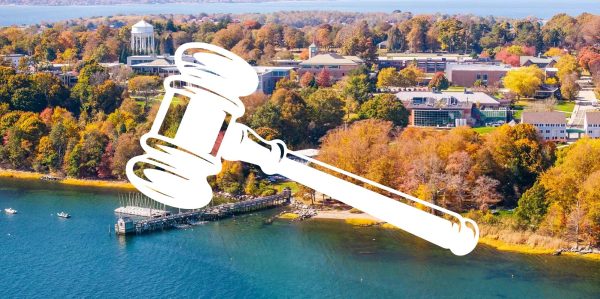Fall plan Zoom session sees big turnout and more discussion on keeping the community safe
Over 200 students tuned into a Zoom session about fall reopening measures on July 22. A panel of RWU faculty members hosted the meeting and discussed planned measures to prevent the spread of COVID-19 on campus this fall. Session attendees asked over 100 questions about testing, contact tracing, campus life and more.
Below are some of the strategies the university currently has planned.
As recently announced by President Miaoulis, the university has partnered with the Broad Institute, based out of Cambridge, Massachusetts, to administer free coronavirus tests and analyze results for students, faculty and staff. Students are not required to take a test before returning to school but are encouraged to do so. During the check-in process, all students will be self-administering a test under the observation of a staff member as well as reviewing and signing a code. The tests are anterior swab tests inside each nostril with results turnaround time between 12-24 hours. The university aims to conduct rapid testing with saliva tests by October.
The first floor of Baypoint, utilizing a separate entrance, will be used as an on-campus location for quarantine and isolation housing. Students needing quarantine or isolation will first be directed to return home for this period; however, if a return to their homes is not within feasible driving range, these students will be quarantined or isolated at Baypoint. Isolated students will have private rooms and bathrooms on this floor and will be restricted from all other areas of Baypoint and the shuttle, having meals delivered to their rooms.
Everyone will be required to wear masks on campus unless they are eating or spending time in their residence halls. Large buildings on campus like Upper Commons and the library will have temperature screening stations. There will be no visitors inside residence halls and Vice President for Student Life John King advised students not to visit other colleges while also limiting their visits home.
There will be plans in place to reduce the density of people in common areas. In order to reduce the number of people in buildings, classes will be released at different times. Classrooms will be equipped with cleaning stations and have social distancing protocols, like taking seats out of rooms or labeling seats that students can sit in. The university has spent over $1 million on new technology to ease the transition to a different learning environment.
The dining experience will look very different for returning students, with limited capacity at Upper Commons and meal swipes being accepted at Lower Commons for lunch and dinner. There will also be a tent set up on the quad between Commons and the School of Architecture building that can seat 180 people, with dining similar to Upper Commons. Everything in the dining areas will be served in takeout containers. Lower will reopen for retail at 8:30 p.m., accepting hawk dollars and credit cards, but no cash. Lower will also be utilizing an app for food orders.
In regards to multiple questions about student engagement, Assistant Dean of Students and Student Programs, Leadership and Orientation Director Carol Sacchetti said her office is looking at each club individually to determine how they can proceed with events and other activities.
For most health and counseling services on campus, the university will be using telehealth. A full time counselor is being added to the Counseling Center to specifically address student needs during times of added stress due to COVID-19.
For more detailed information regarding the reopening of the university, https://www.rwu.
Rachel Dvareckas was a 2022 RWU journalism graduate who spent four years dedicated to The Hawks’ Herald. She currently takes on more creative roles...





